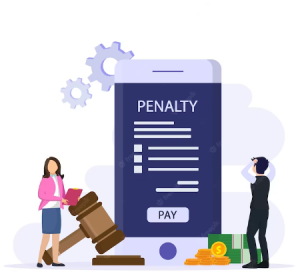 Introduction
Introduction
Filing income tax returns is an essential responsibility for taxpayers in India. The Income Tax Department sets a deadline each year for individuals and entities to file their returns. However, due to various reasons, individuals may sometimes miss the filing deadline. In this article, we will explore whether it is possible to file an income tax return after missing the deadline in India and the associated procedures.
Late Filing of Income Tax Returns
In India, the deadline for filing income tax returns for individuals is generally July 31st of the assessment year. However, for the assessment year 2022-23, the deadline was extended to September 30th, 2023, due to the ongoing COVID-19 pandemic. Despite such extensions, individuals may still miss the deadline due to reasons such as personal circumstances, unawareness, or other factors.
 Penalties for Late Filing
Penalties for Late Filing
The Income Tax Department imposes penalties for late filing of income tax returns. As per Section 234F of the Income Tax Act, if an individual files their return after the deadline but before December 31st of the assessment year, they are liable to pay a late filing fee of Rs. 5,000. However, if the return is filed after December 31st, the late filing fee increases to Rs. 10,000. For individuals with a total income up to Rs. 5 lacks, a maximum late filing fee of Rs. 1,000 is applicable.
Consult CA Arun Tiwari for more information at 📞 8080088288 or cs@aktassociates.com
Filing an Income Tax Return After Missing the Deadline
Yes, it is possible to file an income tax return even after missing the deadline in India. The procedure for filing a late return is similar to filing within the deadline, with a few additional steps.
- Visit the Income Tax Department’s e-filing portal: Access the official website of the Income Tax Department and log in to the e-filing portal using your credentials.
- Select the appropriate assessment year: Choose the correct assessment year for which you are filing the late return. Ensure that you are filing for the correct year to avoid any discrepancies.
- Fill in the required details: Provide the necessary details, including personal information, income details, deductions, and any other relevant information. Ensure accuracy and cross-check the information before submission.
- Calculate tax liability and pay any outstanding dues: Calculate your tax liability for the financial year and pay any outstanding tax dues, including interest and penalties. The late filing fee mentioned earlier will be applicable.
- Submit the return: Once all the required information is provided and the tax liability is settled, submit the return electronically on the e-filing portal. Save the acknowledgment receipt for future reference.
Important Considerations
While filing a late return, it is crucial to keep the following points in mind:
- Interest on late filing: In addition to the late filing fee, the Income Tax Department may charge interest under Section 234A for the period of delay in filing the return. The current rate of interest is 1% per month or part thereof on the outstanding tax amount.
- Revised return: If you have already filed the return within the deadline but later realize that there are errors or omissions, you can file a revised return within a specified time frame. However, a late filing fee is not applicable for revised returns.
- Prosecution for non-compliance: In certain cases of deliberate non-compliance or tax evasion, the Income Tax Department may initiate legal action, including prosecution. It is important to fulfill your tax obligations and file returns in a timely manner to avoid any such consequences.

Conclusion
While it is advisable to file income tax returns within the stipulated deadline, the Income Tax Department provides provisions for late filing in India. By paying the applicable late filing fee and fulfilling the necessary requirements, taxpayers can still file their returns even after missing the deadline. However, it is crucial to adhere to the timelines and comply with the tax regulations to avoid penalties and legal consequences. It is always recommended to seek professional advice or consult a tax expert for guidance when filing late returns or facing any complexities in the process.

